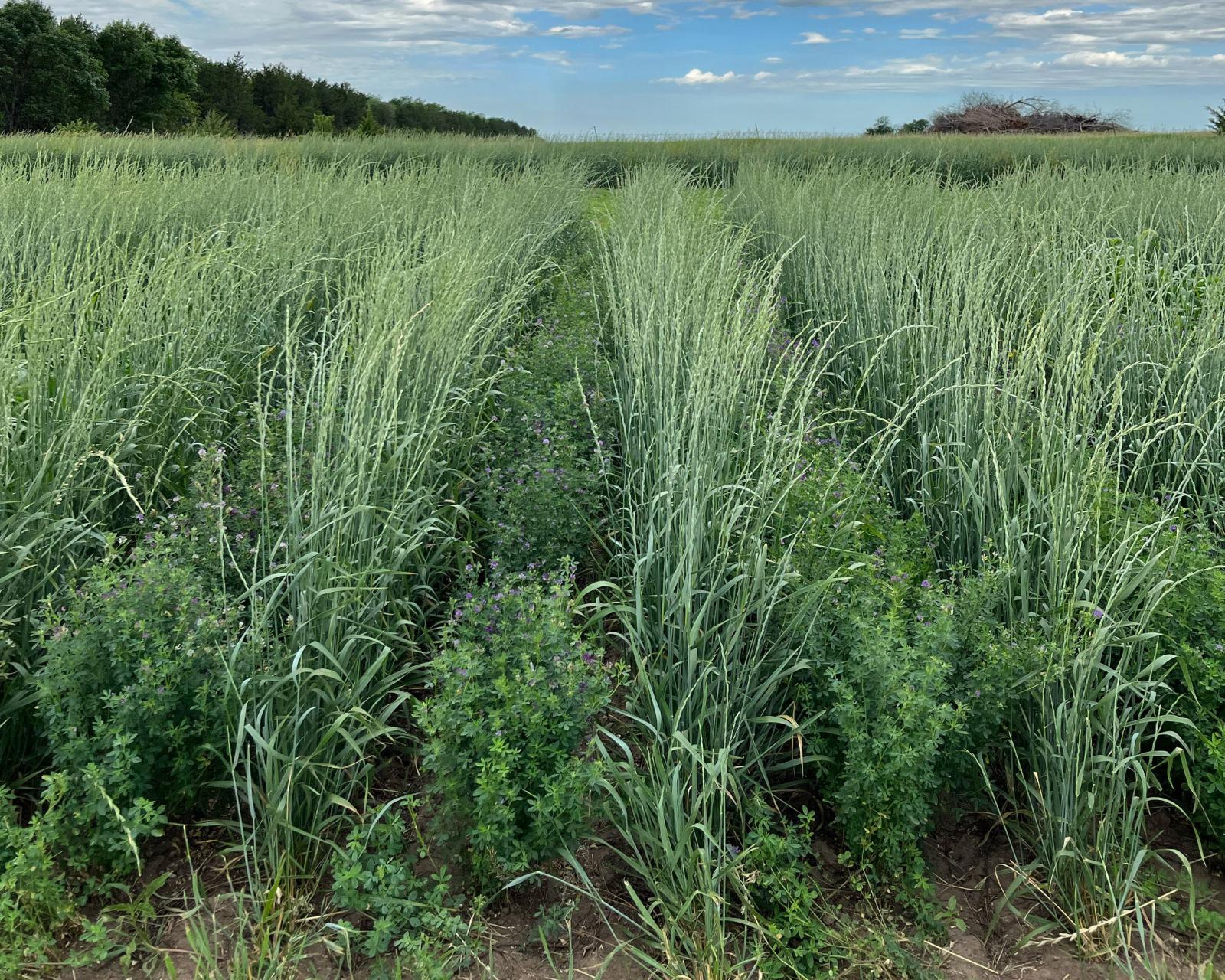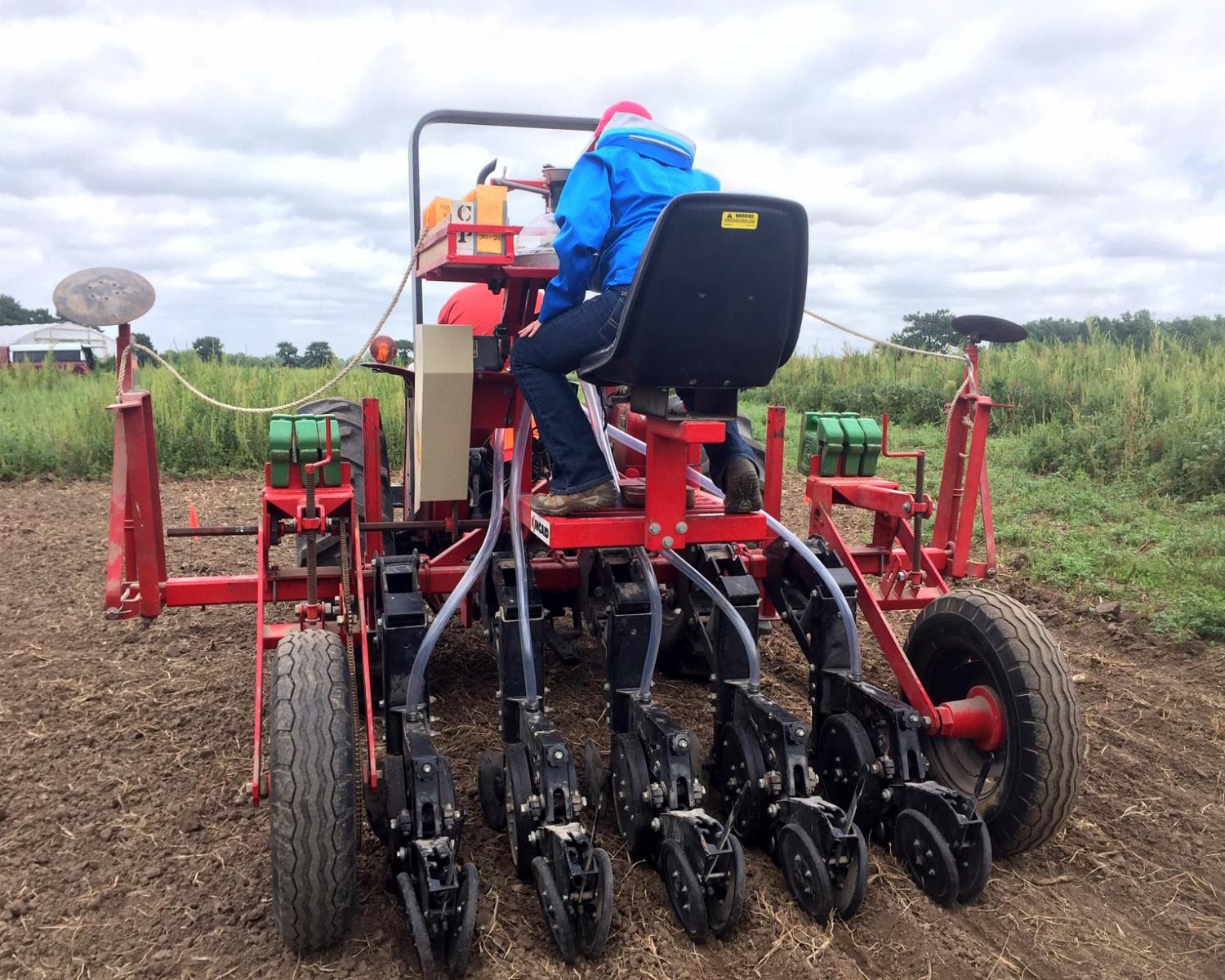
AGRO 204: Resource efficient crop management
AGRO 204 is an introduction to the many considerations surrounding field crop management and production, with an emphasis on Nebraska cropping systems. This course is currently being taught in the spring semesters only.
In Spring 2020, our course shifted in March to an emergency remote teaching situation, due to the COVID-19 pandemic. In spite of the challenges we were all facing, students completed a two week module using the cropping systems modeling platform APSIM, with a goal of understanding the complex interactions behind management decisions and the environment that underpin agronomic outcomes such as yield.
An assessment of student learning from these activities was published in 2021 in the journal Natural Sciences Education. In Spring 2019, students in Agronomy 204 worked on a “cover crop challenge” to gain more hands-on experience with cover crops and competed to see who could design a plant mix to grow the most for the least cost.
In Spring 2018, students in Agronomy 204 completed an assignment related to issues with the herbicide dicamba and dicamba-tolerant soybean. This work was featured on the Streaming Science portal.
Andrea Basche was selected to participate in the 2018-2019 Peer Review of Teaching Project and published a teaching portfolio analyzing student assessments from Agro 204. Our team is committed to continually improving our teaching and working with students to understand how they learn best and succeed. We have embarked on several scholarship of teaching related efforts that we will continue to make publicly available.
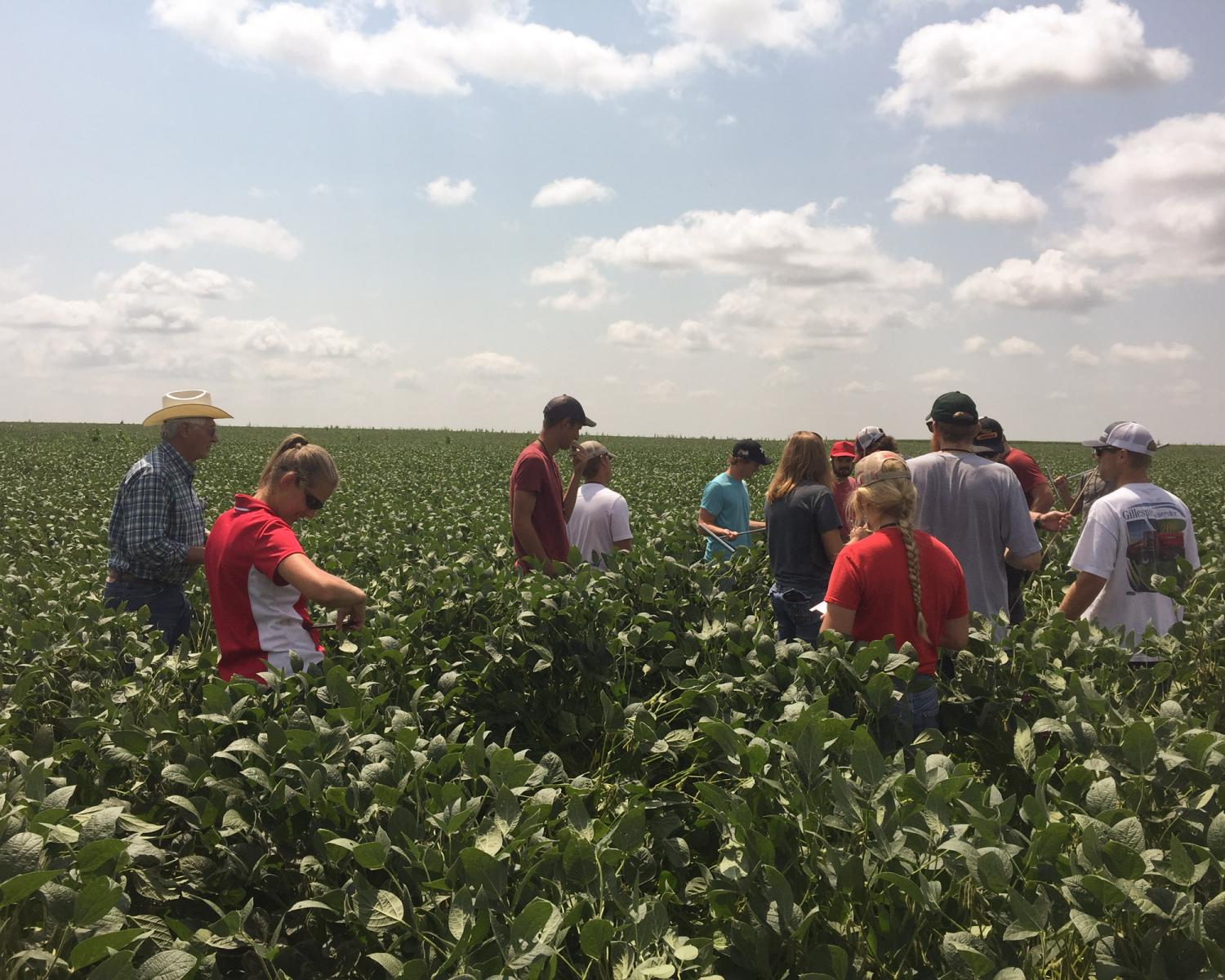
AGRO 405: Crop management strategies
Agronomy 405 is a capstone course, typically taken by seniors, where students integrate multiple aspects of crop management in creating farm management plans for working operations. This course is currently being taught in the fall semesters only.
In fall 2020, our course launched a multi-year partnership with the Lewis and Clark Natural Resources District where students will develop farm management plans for several producers in the Bow Creek Watershed (near Hartington, Nebraska). The goal of this partnership is to help the Natural Resources District and producers consider whole farm management planning that can support reduced water pollution in the watershed.
In fall 2019, the course collaborated with three Nebraska women landowners and their tenants interested in incorporating more conservation into their farm management. These projects are supported through a USDA North Central Region SARE Partnership Grant (ONC 19-052).
In fall 2018, the course collaborated with a corn-soybean producer near York, NE and over the course of the semester put together an improved management plan for the operation.
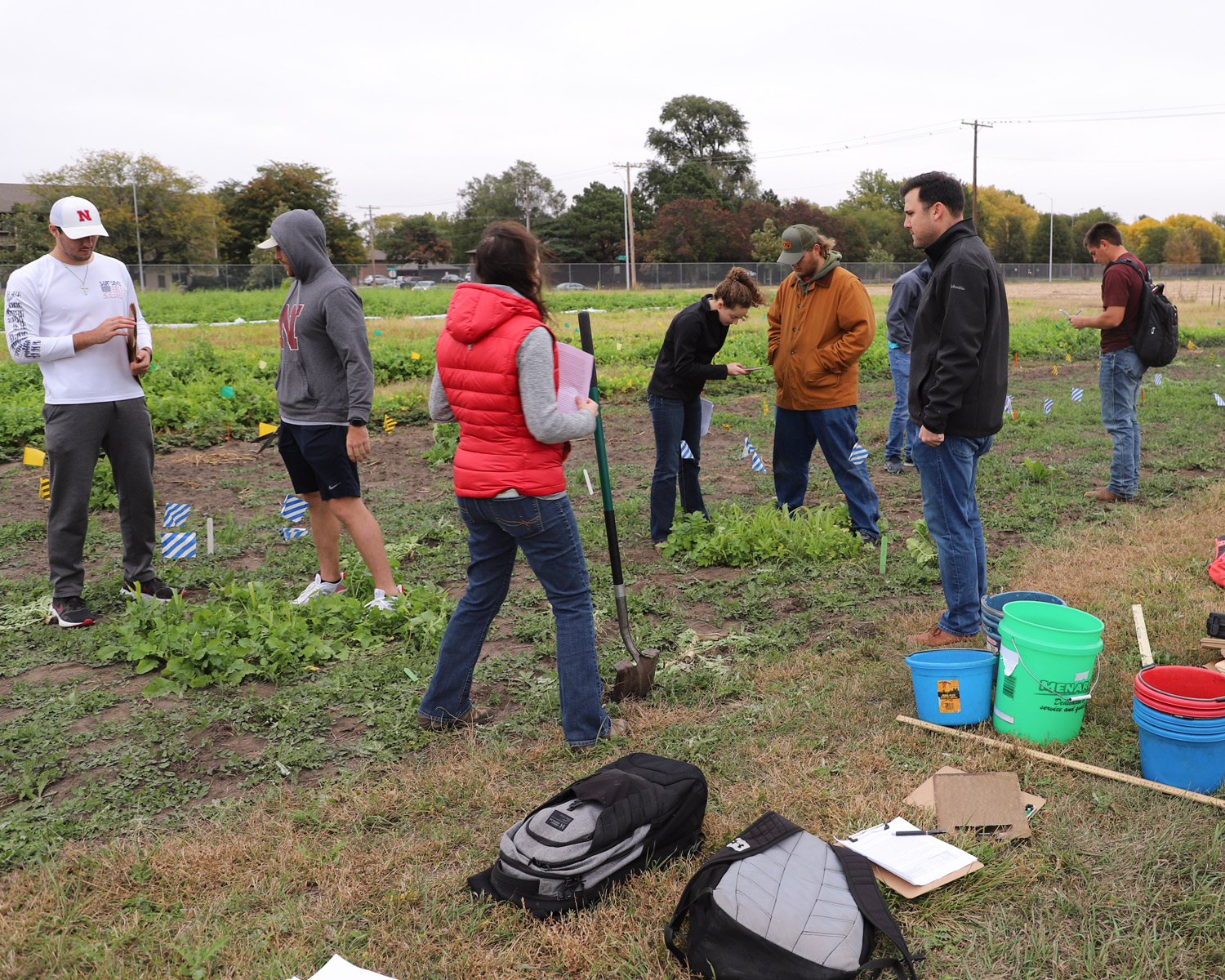
AGRO 425/825: Cover Crops in Agroecosystems
Cover crops in agroecosystems is a new course focused on expanding the use of this important conservation practice.
AGRO 425/825 Fall 2021 Syllabus
We plan to offer the course every Fall with resident and online sections. With the support of the Precision Sustainable Agriculture CAP award from USDA-NIFA, we have co-developed materials with colleagues to simultaneously offer the course experience across six other institutions (Michigan State University, University of Kentucky, University of Maryland, Clemson University, Cornell University and the University of New Hampshire). The UNL course is co-taught by Sam Wortman.
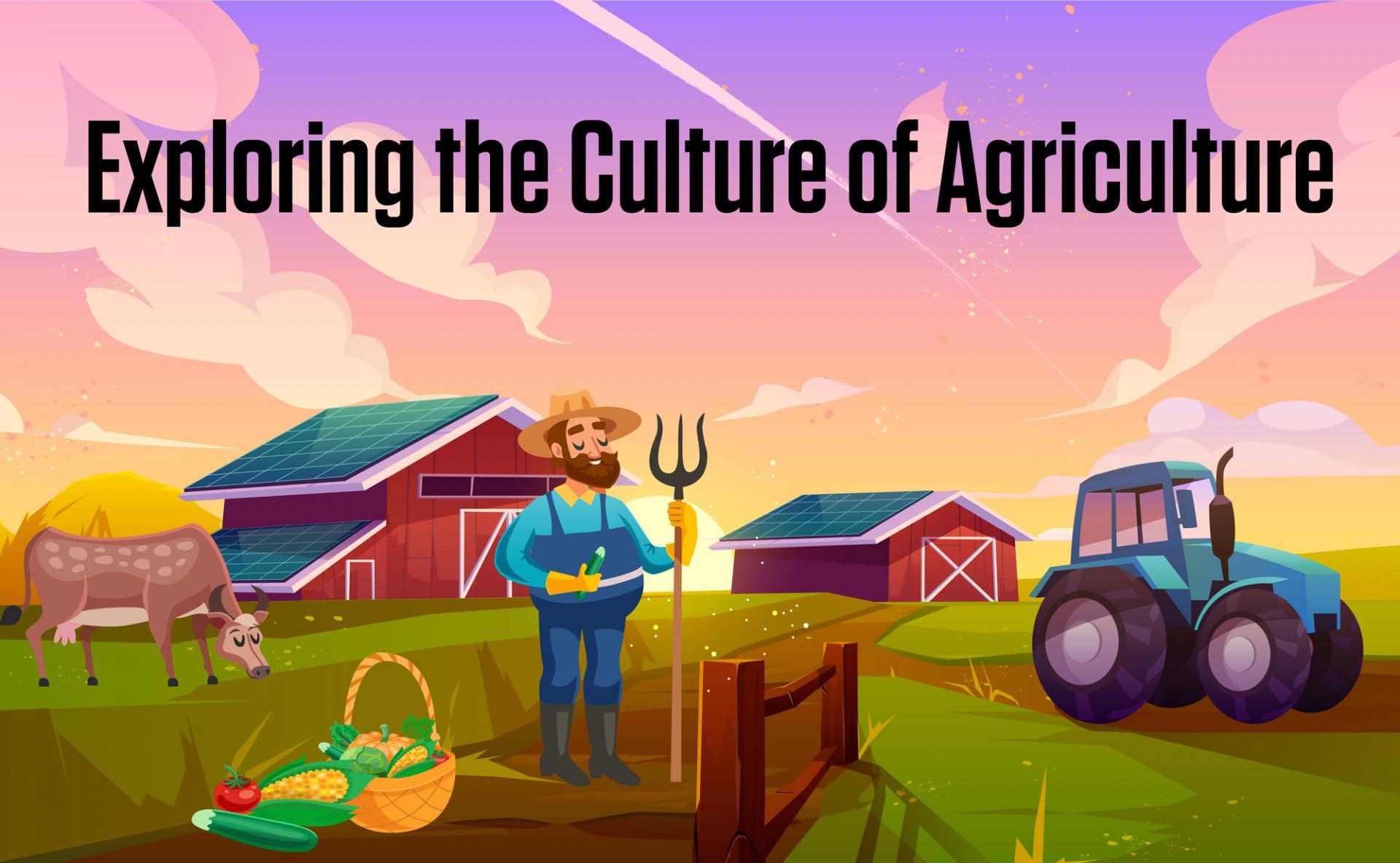
Independent study 496/896: Exploring the culture of agriculture
Mini session course offered in January 2023 term, previously offered in the Fall 2020 and Spring 2022 mini session terms.
This course will explore the culture behind agriculture in the United States – aspects such as the values, customs and social norms – and how this culture can support as well as inhibit inclusivity in our research, extension/outreach, and workplaces. Through reading and discussion, we will work together to begin outlining actions that will ultimately provide more opportunity for all –to unlock creative new ideas and create space at decision-making tables such that our shared professional goals might be thoroughly achieved.
